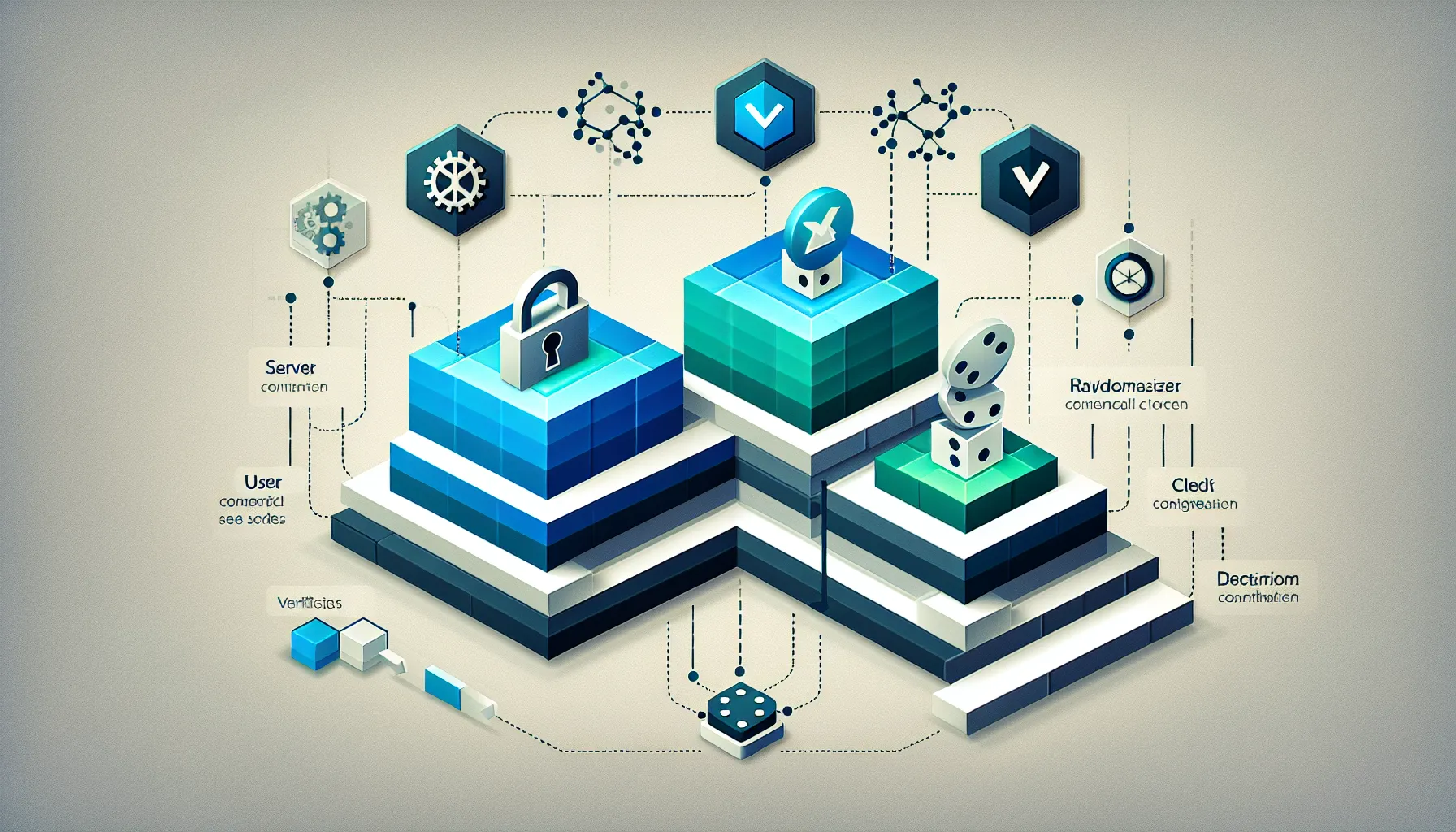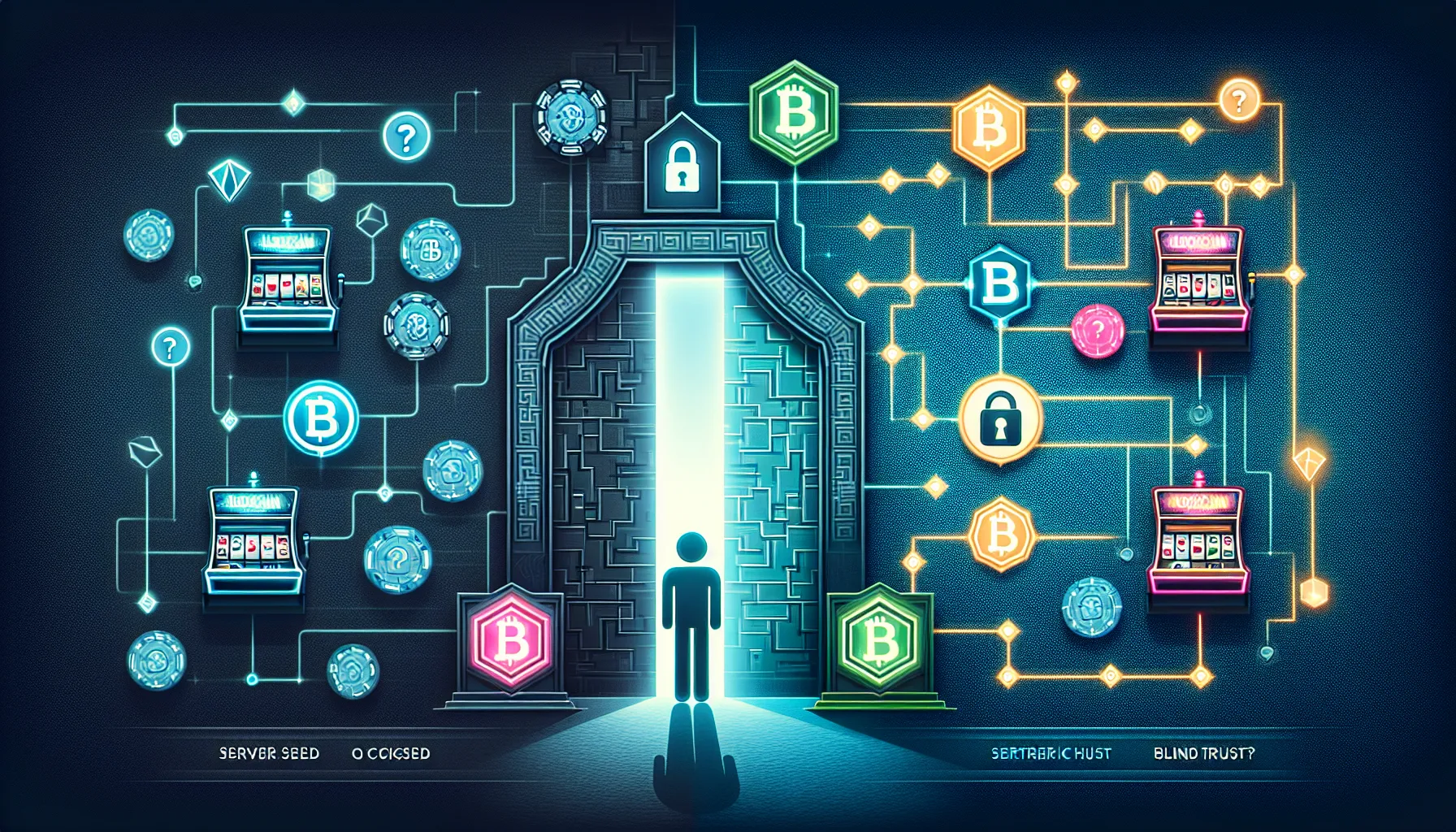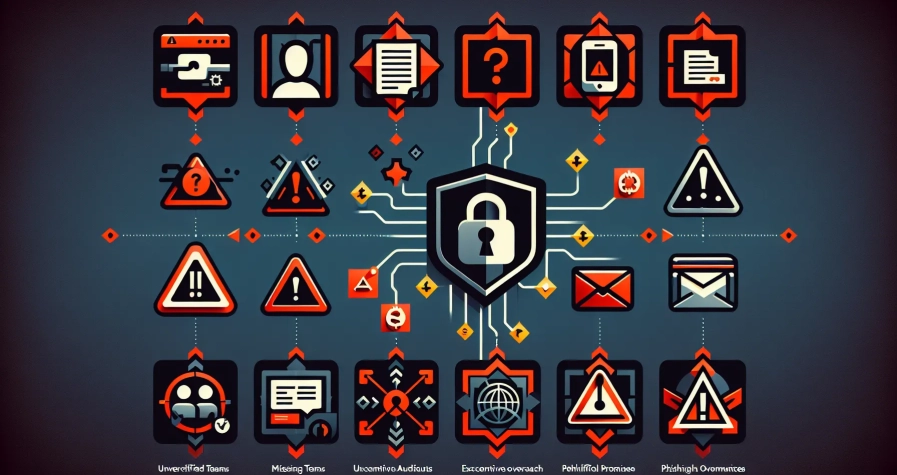For decades, online casino players have had to place blind trust in gaming operators, hoping the house wasn’t manipulating results behind closed doors. Traditional online casinos operate as black boxes, players spin the reels or place their bets, but have no real way to verify whether outcomes are genuinely random or rigged in the operator’s favour. This fundamental trust gap has plagued the industry since its inception, with players often left wondering if they ever stood a fair chance.
Enter blockchain technology and the concept of provably fair gaming. By leveraging cryptographic algorithms and transparent ledger systems, crypto casinos have introduced a revolutionary approach that allows players to independently verify the fairness of every single game outcome. Rather than trusting an operator’s word or a distant regulator’s stamp of approval, players can now use mathematical proof to confirm they weren’t cheated. It’s a shift that’s transforming online gambling from a faith-based activity into one grounded in verifiable transparency. This article explores how provably fair technology works, why blockchain is essential to its implementation, and what this means for the future of online gaming.
Key Takeaways
- Provably fair gaming uses cryptographic algorithms and blockchain technology to allow players to independently verify that casino game outcomes haven’t been manipulated.
- Blockchain makes crypto casinos more transparent by creating an immutable, publicly accessible ledger where game data and verification information are permanently recorded.
- Players can verify fairness by checking that the casino’s pre-committed cryptographic hash matches the revealed server seed and that outcomes are correctly derived from both server and client seeds.
- Whilst provably fair systems eliminate outcome manipulation, they don’t guarantee reasonable house edges or overall game balance, so players must still evaluate payout structures.
- Smart contracts automate the entire gaming process on-chain, removing trust requirements by executing transparent, publicly auditable code that handles everything from seed generation to payouts.
- The future of online gaming points towards decentralised platforms, improved blockchain scalability, and provable fairness becoming an expected industry standard rather than a novel feature.
Understanding Provably Fair Technology

Provably fair technology represents a fundamental departure from conventional online gaming trust models. Instead of asking players to simply believe that games are fair, provably fair systems provide cryptographic proof that can be independently verified by anyone with basic technical knowledge.
At its core, provably fair gaming uses a combination of server seeds, client seeds, and cryptographic hashing to generate game outcomes in a way that’s transparent and verifiable. The casino generates a secret server seed before a game begins, then creates a cryptographic hash of that seed, essentially a unique digital fingerprint, which it shares with the player before any bets are placed. The player then contributes their own client seed (often generated randomly or chosen by the player). These seeds are combined using a predetermined algorithm to produce the game’s outcome.
What makes this process “provably fair” is that the casino commits to its seed value before knowing the player’s seed, and the cryptographic hash prevents the casino from changing its seed after the fact. Once the game concludes, the casino reveals its original server seed, allowing the player to verify that it matches the hash they received earlier and that the outcome was genuinely derived from the agreed-upon seeds. Any tampering would immediately become apparent because the hash wouldn’t match.
This approach eliminates the possibility of post-facto manipulation, the casino can’t see the outcome and decide to change it retroactively because it’s already committed to its seed value through the hash.
What Makes a Game Provably Fair?
For a game to be genuinely provably fair, it must meet several critical criteria. First, the outcome must be deterministically derived from seeds provided by both the casino and the player, meaning the same seeds always produce the same result through a transparent algorithm. Second, the casino must commit to its seed before the player makes their contribution, typically by publishing a cryptographic hash of the server seed. Third, players must be able to verify outcomes independently using the revealed seeds and the publicly available algorithm.
The algorithm used to combine seeds and generate outcomes must also be publicly documented and ideally open-source, allowing third parties to audit its fairness. Also, the cryptographic hash function employed (typically SHA-256 or similar) must be collision-resistant, meaning it’s computationally infeasible for the casino to find two different seeds that produce the same hash.
Transparency is equally important. Players should have easy access to verification tools, either built into the casino interface or available through independent third-party verifiers. Many provably fair casinos provide instant verification features that allow players to check any game round with a single click, displaying all the relevant seeds, hashes, and calculation steps.
It’s worth noting that not all games claiming to be provably fair actually meet these standards. Some operators use the term loosely without implementing proper cryptographic protocols, which is why player education and independent verification tools have become increasingly important in the crypto casino space.
How Blockchain Enables Transparent Gaming
Blockchain technology provides the foundational infrastructure that makes provably fair gaming not just possible, but practically implementable at scale. While the core concept of provably fair algorithms existed before widespread blockchain adoption, the technology’s inherent characteristics, immutability, transparency, and decentralization, have made verification more accessible and trustworthy.
The blockchain serves as an immutable ledger where game data, transactions, and verification information can be permanently recorded. Once data is written to a blockchain, it can’t be altered or deleted, creating a permanent audit trail that anyone can inspect. This immutability is crucial because it means neither the casino nor the player can retroactively dispute what happened in a given game round, the evidence is preserved forever on-chain.
Also, blockchain’s public nature means that verification data is accessible to anyone, not just the parties directly involved in a game. Independent auditors, researchers, or concerned players can examine patterns across thousands of games to identify any statistical anomalies that might indicate unfairness. This level of transparency would be nearly impossible to achieve with traditional, centralized database systems where operators control all access to game data.
Cryptographic Hashing and Game Outcomes
Cryptographic hashing forms the mathematical backbone of provably fair systems. Hash functions take an input of any size and produce a fixed-size output (the hash) that appears random but is completely deterministic, the same input always produces the same hash. Critically, these functions are one-way: you can easily compute the hash from the input, but it’s practically impossible to reverse-engineer the input from the hash alone.
In provably fair gaming, the casino generates a random server seed and immediately creates a hash of it using algorithms like SHA-256 or HMAC-SHA512. This hash is shown to the player before they place their bet or contribute their client seed. Because the hash acts as a commitment, the casino can’t change its seed without changing the hash, players can be confident the outcome wasn’t manipulated after they made their bet.
Once the game round completes, the casino reveals its original server seed. The player can then run the same hash function on the revealed seed to verify it matches the pre-committed hash. If they match, the player knows the casino didn’t cheat. Combined with the client seed (which the player either provided or can verify was generated fairly), the revealed server seed can be fed into the game’s algorithm to independently recalculate the outcome.
This mathematical approach removes the need to trust the casino’s integrity or worry about compromised random number generators. The cryptography itself enforces fairness, and any player with basic tools can perform the verification.
Smart Contracts and Automated Verification
Smart contracts take provably fair gaming a step further by automating the entire process on-chain, removing even the small amount of trust required when dealing with off-chain verification. These self-executing contracts, running on blockchain platforms like Ethereum or alternative networks, can handle the entire game lifecycle, from seed generation and commitment to outcome determination and payout, without human intervention.
When a game is built on smart contracts, the rules are encoded directly into immutable blockchain code that executes automatically. A player places a bet by interacting with the contract, which triggers the seed commitment process. The smart contract generates or records the server seed hash, accepts the player’s seed, and then deterministically calculates the outcome using the predefined algorithm. Once complete, it automatically distributes winnings according to the result.
Because smart contracts are transparent and their code is publicly auditable, players can review the exact logic that determines outcomes. There’s no hidden server-side code that might contain backdoors or manipulation mechanisms. Several blockchain gaming platforms have embraced this model, with projects building entire casino ecosystems on smart contract infrastructure.
The challenge with smart contract gaming lies in blockchain limitations, transaction fees, processing speeds, and the computational complexity of running sophisticated games on-chain. Many platforms adopt hybrid approaches, using smart contracts for critical fairness verification while handling game graphics and user interface elements off-chain. This strikes a balance between trustlessness and practical usability.
Verifying Fairness: A Step-by-Step Process
Understanding the theory behind provably fair gaming is one thing: knowing how to actually verify a game is another. Fortunately, the verification process, whilst mathematically rigorous, can be broken down into straightforward steps that even non-technical players can follow using available tools.
The verification journey typically begins before a game round even starts. The casino displays a hashed server seed, a long string of alphanumeric characters that represents the cryptographically hashed version of the secret seed that will determine the outcome. Players should note or screenshot this hash, as it represents the casino’s commitment to a particular seed value. Many platforms allow players to generate their own client seed or verify that a client seed was created fairly through browser randomness or other transparent methods.
After placing a bet and completing the game round, the casino reveals the original unhashed server seed along with the client seed (if it was generated automatically). At this point, the player can begin verification. First, they should hash the revealed server seed using the same algorithm the casino uses, most provably fair casinos clearly state whether they use SHA-256, SHA-512, or another hashing method. If the resulting hash matches the one displayed before the game, the player knows the casino didn’t change its seed after seeing the outcome.
Next, the player feeds both the server seed and client seed (along with any other parameters like nonce or round number) into the game’s outcome algorithm. Reputable casinos provide documentation explaining exactly how outcomes are calculated from seeds, and many offer built-in calculators or verification tools. By running these calculations independently, either manually, through the casino’s verification interface, or via third-party verification websites, the player can confirm that the displayed outcome matches what the algorithm genuinely produced.
If everything checks out, the revealed seed hashes correctly and produces the claimed outcome, the game was provably fair. If there’s any discrepancy, it’s evidence of manipulation or technical error. Several independent websites and browser extensions have been developed specifically to help players verify provably fair games across multiple casino platforms, making the process even more accessible. Some players verify every session, whilst others spot-check periodically. Either way, the ability to verify is what matters, creating accountability that didn’t exist in traditional online casinos.
Benefits of Provably Fair Casinos for Players
The shift toward provably fair gaming delivers tangible advantages that extend well beyond theoretical transparency. For players, these benefits transform the fundamental relationship with online casinos from one of blind faith to informed participation.
The most obvious benefit is the elimination of manipulation concerns. In traditional online casinos, players have no way to confirm that the random number generator is genuinely random or that the stated return-to-player (RTP) percentages are accurate. Operators could theoretically adjust game outcomes during losing streaks or target specific high-value players. Provably fair systems make such manipulation mathematically impossible without detection. Players can verify that each outcome was truly random and derived fairly from committed seeds, providing peace of mind that was previously unattainable.
This verifiability also enables players to conduct their own statistical analyses. By collecting verification data across hundreds or thousands of game rounds, mathematically-inclined players can independently confirm that outcomes conform to expected probability distributions. If a slot game claims a certain RTP or a dice game advertises specific odds, players can empirically test these claims rather than relying on operator assurances or third-party audits that may be infrequent or compromised.
Transparency builds trust, which benefits the entire ecosystem. Players are more willing to engage with platforms where they can verify fairness, potentially leading to larger deposits and longer playing sessions. This creates a positive feedback loop, casinos that carry out robust provably fair systems attract more serious players, whilst those that don’t face increasing scepticism.
Provably fair gaming also reduces disputes. When players can independently verify outcomes, there’s less room for arguments about whether a game was rigged or whether the casino cheated. This clarity protects both parties, legitimate players can prove they were treated fairly, and honest casinos can demonstrate their integrity when accusations arise.
Finally, provably fair technology gives players more control over their experience. Some implementations allow players to manually set or influence their client seed, providing a tangible sense of participation in outcome generation. Whilst this doesn’t change the mathematical odds (games remain based on probability), it creates a more engaging and empowering user experience.
Limitations and Considerations
Even though its revolutionary potential, provably fair gaming isn’t a perfect solution and comes with several limitations that players and operators must navigate. Understanding these constraints is essential for realistic expectations about what the technology can and cannot accomplish.
First, provably fair systems only verify that individual game outcomes are generated fairly from committed seeds, they don’t guarantee that the underlying game mechanics are balanced or that the house edge is reasonable. A casino could carry out a perfectly provably fair dice game but set the payout structure so unfavourably that players have virtually no chance of long-term profit. Provable fairness addresses manipulation, not mathematical game design. Players must still evaluate whether the stated odds and RTP are acceptable, regardless of whether outcomes are verifiable.
The verification process, whilst straightforward in theory, presents a practical barrier for many players. Most casino users aren’t technically inclined and may find hashing algorithms and seed verification intimidating or tedious. Even when casinos provide user-friendly verification tools, many players simply don’t bother to use them, either out of laziness or lack of understanding. This creates a gap between provably fair gaming’s potential and its actual impact on player behaviour.
Another consideration is that not all casino games translate well to provably fair implementations. Simple games like dice, roulette, or card games are relatively easy to make provably fair because their outcomes can be deterministically generated from seeds. Complex games with intricate graphics, progressive features, or multi-stage outcomes are more challenging. Some licensed slot games from traditional providers can’t be adapted to provably fair systems due to proprietary algorithms or licensing restrictions, limiting the game variety at fully transparent crypto casinos.
Blockchain-based implementations also face scalability challenges. Recording every game outcome on-chain or executing games through smart contracts can be slow and expensive when network congestion drives up transaction fees. Many platforms compromise by using hybrid models or layer-2 solutions, which may reintroduce some degree of centralisation or trust requirement.
There’s also the issue of regulatory ambiguity. Provably fair casinos operating in the crypto space often exist in jurisdictional grey areas, and players may have limited legal recourse if disputes arise or if a platform shuts down. Traditional regulated casinos, even though lacking provable fairness, often provide consumer protections, responsible gambling tools, and dispute resolution mechanisms that crypto casinos may not offer.
Finally, the mere existence of provably fair technology doesn’t guarantee a casino is trustworthy in other respects. An operator might carry out perfect game fairness whilst engaging in questionable practices around withdrawals, bonus terms, or customer service. Players still need to evaluate casinos holistically, considering reputation, licensing, security, and business practices alongside game fairness.
The Future of Transparent Online Gaming
Provably fair gaming represents just the beginning of what’s possible when blockchain technology intersects with online gambling. As the technology matures and adoption spreads, several emerging trends point toward an even more transparent and player-centric future.
One significant development is the growing integration of decentralised autonomous organisations (DAOs) into casino governance. Rather than a single company controlling all aspects of a gambling platform, DAOs distribute decision-making power to token holders who can vote on everything from game additions to profit distribution. This model creates community-owned casinos where transparency extends beyond individual game fairness to encompass the entire business operation. Players become stakeholders with actual influence over the platform’s direction.
Layer-2 blockchain solutions and alternative smart contract platforms are addressing the scalability limitations that have hindered fully on-chain gaming. Technologies like Polygon, Arbitrum, and purpose-built gaming blockchains offer faster transaction speeds and lower fees, making it more practical to carry out comprehensive on-chain gaming experiences without compromising user experience. As these technologies mature, the distinction between provably fair games and fully decentralised gaming platforms will blur.
Cross-chain interoperability is another frontier. Players increasingly expect to use their preferred cryptocurrency regardless of which blockchain a casino is built on, and emerging protocols are making this possible. This interoperability will likely accelerate adoption by removing technical barriers and allowing players to move seamlessly between platforms whilst maintaining verifiable fairness.
Regulatory frameworks are slowly evolving to accommodate blockchain-based gaming. Some jurisdictions are beginning to recognise provably fair technology as a valid alternative to traditional testing and certification processes. As regulations catch up with innovation, we may see hybrid models that combine the transparency of provably fair systems with the consumer protections of licensed gambling operations, offering players the best of both worlds.
Artificial intelligence and advanced analytics tools are making verification more accessible. Rather than expecting players to manually verify seeds and hashes, emerging platforms use AI to continuously monitor game outcomes, automatically flagging any statistical anomalies and presenting verification information in intuitive visual formats. This could bridge the gap between technical capability and practical usability, making provable fairness meaningful to casual players.
The broader gaming industry is taking notice as well. Beyond gambling, blockchain-based games in the play-to-earn and NFT gaming sectors are adopting provably fair mechanics for loot boxes, item drops, and competitive matchmaking. This cross-pollination between gambling and gaming could normalise expectations of transparency across all digital entertainment involving chance or monetary value.
Eventually, provably fair gaming is likely to become table stakes rather than a differentiating feature. As players become more educated about the technology and its benefits, casinos that can’t demonstrate game fairness through cryptographic proof may struggle to compete. What seems revolutionary today could become the expected standard tomorrow, fundamentally reshaping player expectations about transparency and trust in online gaming.
Conclusion
Provably fair gaming, powered by blockchain technology, has introduced a paradigm shift in how players interact with online casinos. By replacing blind trust with mathematical verification, these systems address the fundamental transparency problem that has plagued internet gambling since its inception. Players no longer need to simply believe a casino is treating them fairly, they can verify it themselves using cryptographic proof.
The technology isn’t without limitations. Verification requires some technical understanding, not all games adapt easily to provably fair implementations, and fairness in individual outcomes doesn’t guarantee reasonable overall game mechanics or trustworthy casino operations. Yet even though these constraints, the direction is clear: transparency and verifiability are becoming non-negotiable expectations in the evolving landscape of online gaming.
As blockchain infrastructure improves, regulatory frameworks adapt, and player education advances, provably fair gaming will likely transition from niche innovation to industry standard. The casinos that embrace this transparency early are positioning themselves at the forefront of a more accountable, player-centric gambling ecosystem. For players willing to understand and utilise verification tools, the era of verifiable fairness offers unprecedented confidence in an industry historically built on trust alone. The house may still have an edge, but at least now players can confirm the game isn’t rigged.
Frequently Asked Questions
What is provably fair gaming and how does it work?
Provably fair gaming uses cryptographic algorithms to let players independently verify game outcomes. Casinos commit to a server seed via cryptographic hash before play begins, players contribute a client seed, and these combine to generate verifiable results that cannot be manipulated retrospectively.
How do I verify a provably fair game at a crypto casino?
First, note the hashed server seed displayed before playing. After the round, the casino reveals the original seed. Hash this seed yourself to confirm it matches the original hash, then use both seeds in the game algorithm to verify the outcome matches what was displayed.
Why is blockchain essential for transparent online casinos?
Blockchain provides immutable record-keeping where game data cannot be altered or deleted, creating a permanent audit trail. Its public nature allows anyone to inspect verification data independently, enabling transparency that centralised databases cannot guarantee without trust in the operator.
Can provably fair casinos still have unfair house edges?
Yes. Provably fair technology only verifies that individual outcomes are generated fairly from committed seeds. It doesn’t guarantee the underlying game mechanics, payout structures, or house edge are reasonable. Players must still evaluate whether the stated odds and return-to-player percentages are acceptable.
Are provably fair crypto casinos legally regulated?
Many provably fair casinos operate in regulatory grey areas without traditional gambling licences. Whilst some jurisdictions are beginning to recognise the technology, players often have limited legal protections compared to conventionally licensed operators, despite the transparency advantages blockchain provides.
What are smart contracts in blockchain casino gaming?
Smart contracts are self-executing programmes on blockchain platforms that automate the entire game lifecycle without human intervention. They handle seed commitment, outcome calculation, and payouts transparently, with publicly auditable code that eliminates the need to trust casino operators with game execution.








